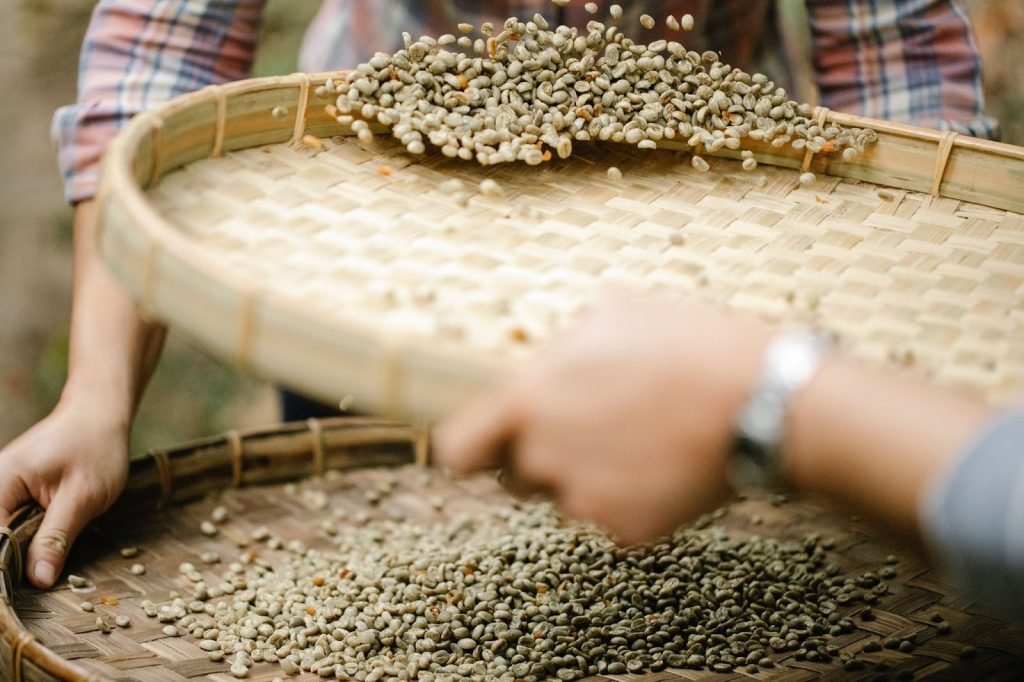Toraja coffee is a specialty coffee variety originating from the Toraja region of South Sulawesi, Indonesia. Known for its distinctive flavor and aroma, Toraja coffee grows in the highlands with nutrient-rich volcanic soil. The production process involves coffee farmers who meticulously maintain quality, from planting to processing. Its unique flavor includes touches of spice, fruit and a special acidity. Toraja coffee is gaining global recognition and attracting coffee lovers and culinary adventurers alike.
Taste and Aroma
Toraja coffee has a distinctive aroma, often adorned with touches of flowers, cinnamon, and sometimes spices. Its distinctive flavor includes a complex combination of gentle acidity, full body, and distinctive fruity flavors. This coffee is also known to have aftertaste that is long-lasting and pleasant, providing a satisfying coffee drinking experience. The unique combination of geographical factors, types of coffee varieties, and processing methods in the Toraja region contribute to the characteristics that distinguish Toraja coffee from other types of coffee.
Geographical Factors
Geographical factors play a significant role in shaping the characteristics of Toraja coffee. The Toraja region, located in Sulawesi, Indonesia, has several elements that affect coffee quality:
1. Elevation
Toraja coffee is grown at high altitudes, often on the slopes of mountains. This elevation can provide ideal atmospheric pressure and temperature differences that help produce dense coffee beans with distinctive flavor characteristics.
2. Climate
Toraja’s distinctive climate, with regular rainy and dry seasons, can affect the growth and development of coffee trees. With a balanced climate, the unique flavor and aroma of Toraja coffee can be formed.
3. Soil and Topography
The type of soil in Toraja also plays a role in determining the character of coffee. Mineral-rich and diverse soils can provide good nutrition for coffee plants. Diverse topography can also affect soil drainage and water balance.
4. Coffee Varieties
The types of coffee varieties grown in Toraja, such as Arabica, play an important role in determining the flavor profile of the coffee. This factor is also influenced by the history of coffee plantations in the area.
Global Market and Acceptance
Toraja coffee has gained global recognition as a high-quality coffee with distinctive flavor characteristics. Several factors supporting the market and global acceptance of Toraja coffee involve:
1. Unique Flavor Profile
Distinctive flavor and aroma characteristics, such as flowers, spices, and gentle acidity, make Toraja coffee stand out in the global market. Coffee enthusiasts looking for a unique experience tend to gravitate towards coffees with complex flavor profiles.
2. Certification and Sustainability
Sustainable farming practices and certifications, such as Organic or Fair Trade, can increase the appeal of Toraja coffee to global consumers who care about environmental aspects and social justice.
3. Promotion and Marketing
Effective promotion and marketing efforts, both through digital platforms and participation in international coffee events or exhibitions, can increase the visibility of Toraja coffee in the global market.
4. Partnership with Industry Players
Collaboration with global coffee industry stakeholders, including roasters, retailers, and coffee providers, can open up new market opportunities and increase the international distribution of Toraja coffee.
Challenges in the Toraja Coffee Industry
Although Toraja coffee has a good reputation, the coffee industry in the area faces several challenges, including:
1. Access to Global Markets
Logistical constraints and limited infrastructure can be barriers for Toraja coffee producers to reach global markets efficiently. Improved accessibility can help overcome these challenges.
2. Coffee Price Fluctuations
Volatile coffee prices in the global market can affect the income of Toraja coffee farmers. Building strategies to manage the risk of price fluctuations is important in maintaining the sustainability of the industry.
3. Climate Change
Climate change can affect coffee production in different ways, such as changes in rainfall patterns or increased temperatures. This can have a negative impact on the quality and quantity of the crop.
4. Agricultural Sustainability
Sustainable agricultural practices are key to maintaining the quality of Toraja coffee. Challenges in implementing these practices involve farmer education, investment, and government support.
5. Competition with Other Coffee
The global coffee industry is highly competitive, and Toraja coffee must compete with products from other regions. An increased understanding of its added value and uniqueness can help win over consumers.
6. Technology and Innovation
The adoption of modern technology in Toraja coffee processing and marketing still needs to be improved. Innovations in processing techniques and the use of digital platforms can help improve efficiency and competitiveness.
Addressing these challenges involves collaboration between farmers, government, and industry stakeholders to create an environment that supports the sustainability and growth of the Toraja coffee industry.
Through our collective efforts, we can taste the deliciousness of Toraja coffee and at the same time make a positive contribution to the community of coffee farmers and artisans in the South Sulawesi region. May every sip of Toraja coffee take us on a journey of deep and satisfying enjoyment in this storied world of coffee.
Reference Source:
https://www.nescafe.com/id/artikel/mengenal-kopi-toraja-yang-melegenda
https://ottencoffee.co.id/majalah/kopi-toraja









